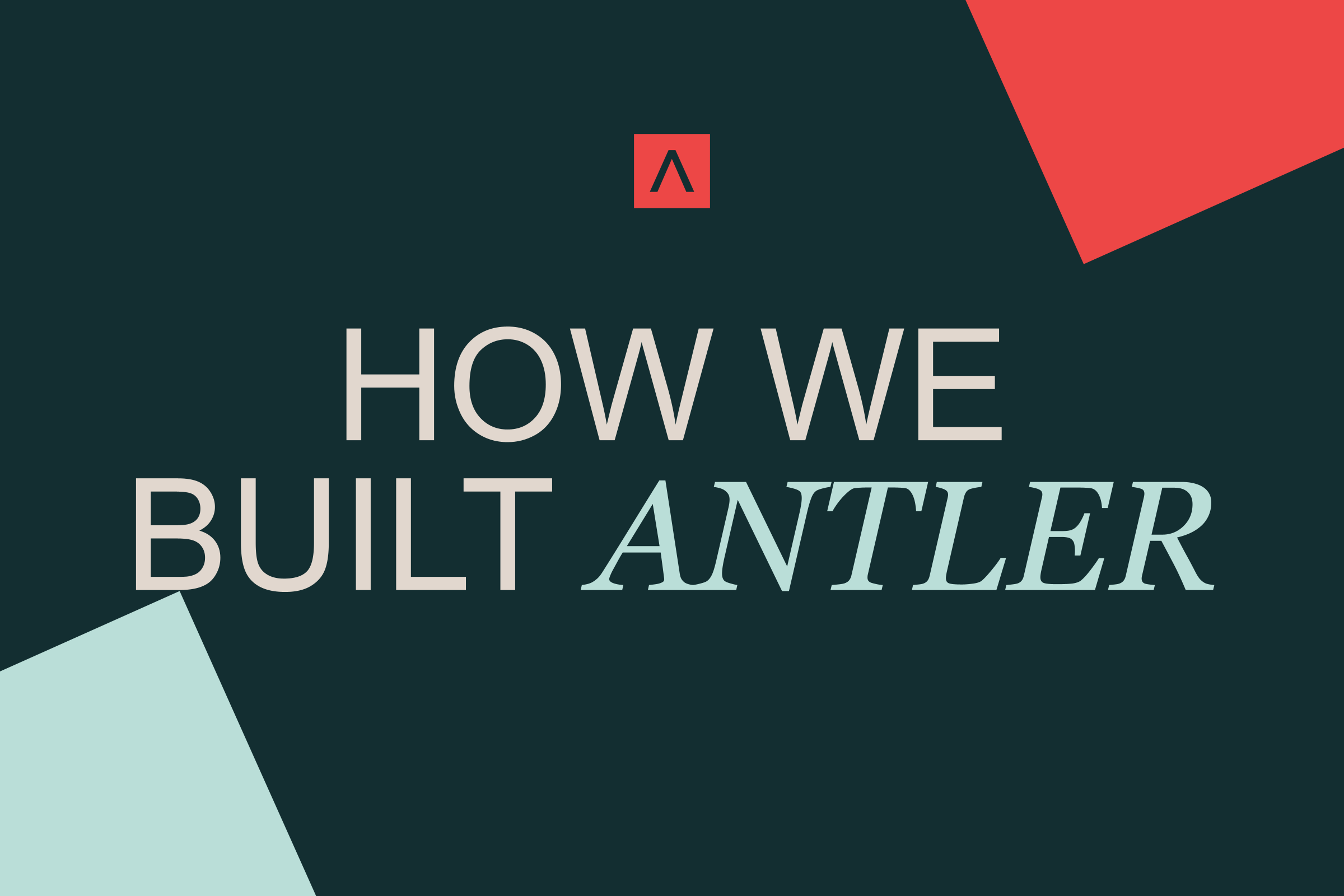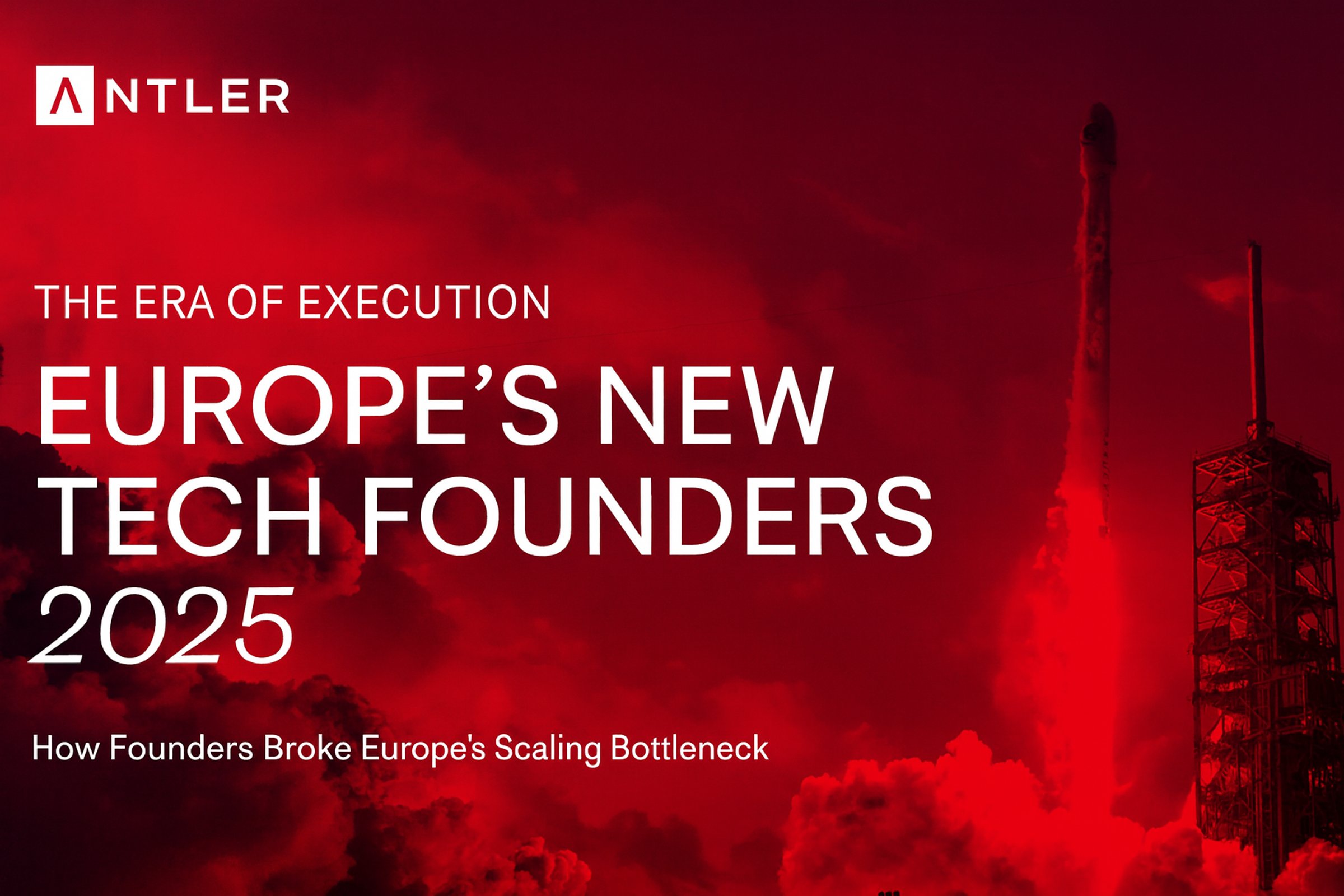At Antler’s European Founder Conference, I had the privilege of moderating a panel with four extraordinary individuals who have each performed at the very highest level of sport.
Jill Ellis, renowned football executive and coach, made history leading the US Women’s National Team to back-to-back FIFA World Cup titles in 2015 and 2019, and now shapes the global strategy of the game as FIFA’s Chief Football Officer. Sol Campbell, one of England’s greatest defenders with over 500 Premier League appearances and 73 England caps, shared his insights on leadership and team dynamics from his years on the pitch. Anders Lindegaard, two-time Premier League winner with Manchester United and former international goalkeeper, reflected on his journey from elite sport to a successful career in banking. And Dr. David Spindler, a leading sports scientist and performance coach, offered a glimpse into how elite athletes, from Tour de France stage winners to Olympians, unlock peak mental performance.
Watch the full panel below
Together, we explored three central themes:
- Building a successful team: What structures, culture, and leadership approaches separate high-performing teams from the rest.
- Qualities & characteristics of high-performing teams: How trust, resilience, and alignment drive success.
- Sustaining excellence at the very top: The mindset, preparation, and habits required to remain at the top over time.
It was inspiring to see how lessons from sport translate so powerfully to building and leading high-performing teams in any field.
Watch the full event and read some key insights below, or view highlights of the event.
Avoiding complacency after success: Jill Ellis
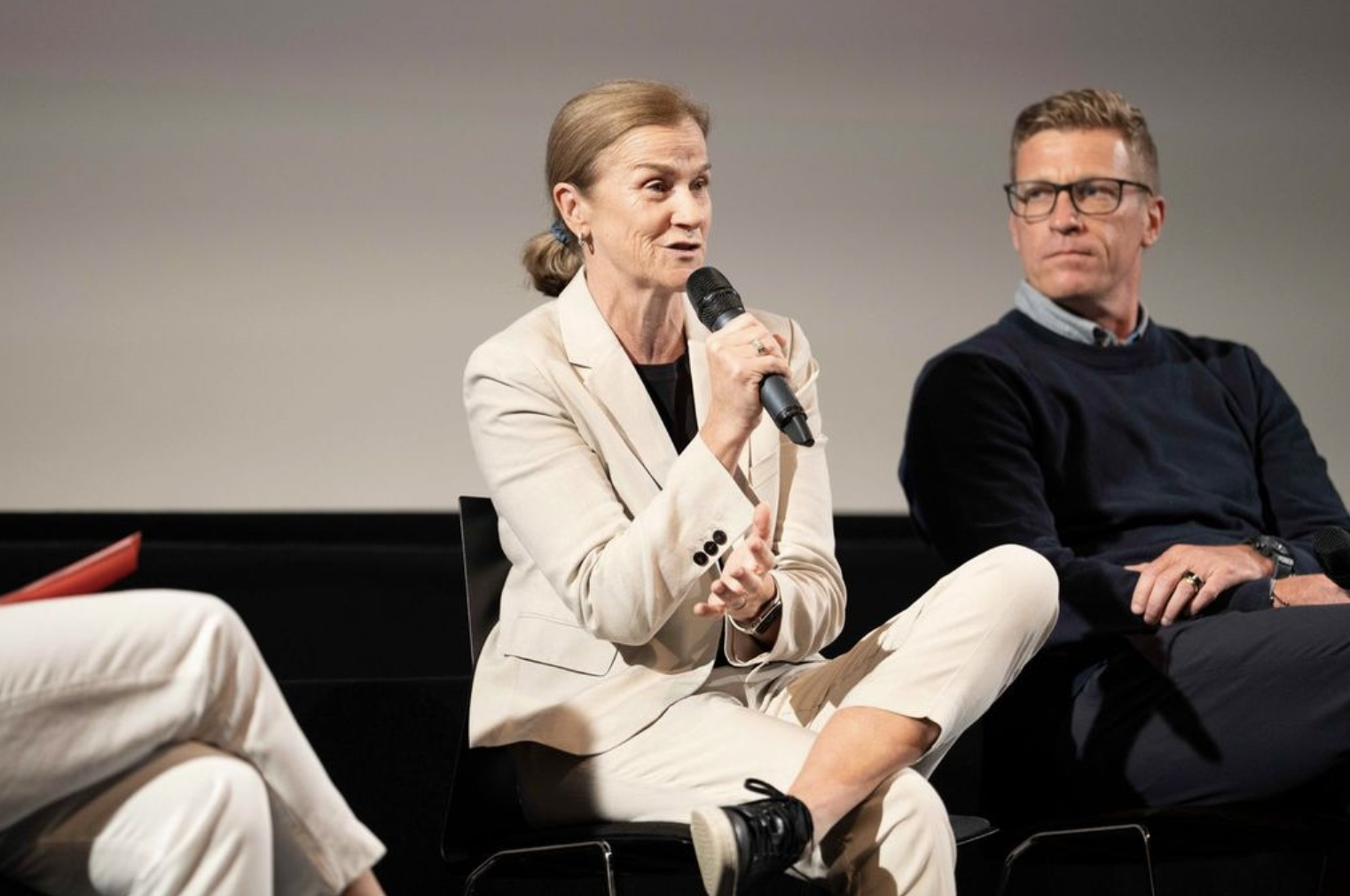
Jill Ellis was the first coach in Women’s World Cup history to win back-to-back titles and only the second-ever in FIFA history, arguably one of the hardest achievements in sport, given the four-year cycle and the pressure of defending a crown.
Between 2015 and 2019, Jill made critical mindset shifts to avoid complacency, instilling a culture of continuous improvement and relentless curiosity. She challenged herself and her players to maintain hunger even at the top, using tools like refreshing the roster, designing a team capable of “answers for any opponent,” and embedding the mantra “One day better” into daily routines.
Jill opened the discussion by reminding us that winning can sometimes be a poor teacher. Big victories often mask underlying weaknesses, while losses force a deeper reflection on the “why” behind performance.
Her metaphor for excellence is a mountaintop, beautiful, thin-air, and no place to linger. You summit, enjoy the view, and then you climb again. After leading the U.S. Women’s National Team to their 2015 World Cup title, Jill and her staff treated success as a reset, not a resting point. They refreshed the roster, re-tuned the competitive environment, and set out a clear vision for the next cycle.
By 2016, the team made a commitment that sounded more like a product roadmap than a sports cliché: build a squad for 2019 with “answers for any opponent we faced.” That phrase captures a mindset familiar to venture-backed operators, design for optionality. Don’t become the best at one thing; become difficult to beat across many.
“Even if you’re on the right track, if you sit there, you’ll get run over.”
“Our mantra was one day better. Can we be better tomorrow than we are today?”
Jill’s cultural mantra “One day better” anchored the team in continual improvement and prevented complacency. She highlighted the power of clarity and value: every player must understand their role and feel their contribution matters.
A subtle shift in language reinforced that principle. She replaced “substitutes” with “Game changers”, spotlighted bench celebrations during reviews, and made it clear that impact isn’t limited to those on the field.
“Whenever we did a review… I’d show the bench celebrating those moments.”
Above all, Jill led with authenticity, allowing both introverts and extroverts to be themselves, which in turn fueled genuine participation, trust, and cohesion.
Sustaining elite standards: Sol Campbell
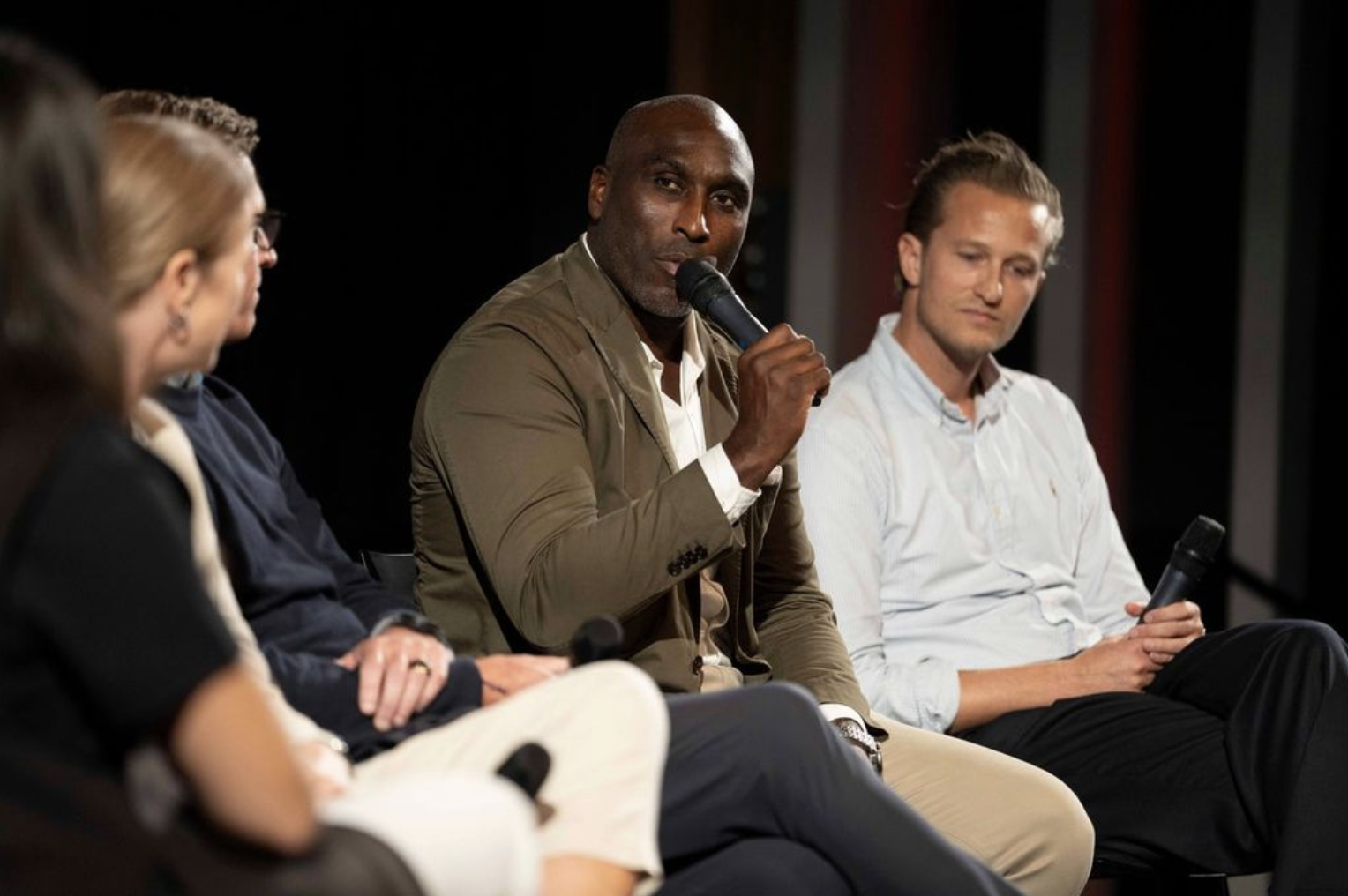
Sol Campbell was part of Arsenal’s legendary “Invincibles”, 49 Premier League matches unbeaten, a record that still stands today. That kind of sustained excellence requires an almost superhuman belief that you simply won’t lose. How do you cultivate that level of mental invincibility? And crucially, how do you maintain it when you’re 30+ games in and the pressure is building with each match?
Sol shared his perspective on sustaining performance and managing high-ego environments. How does a team sustain that kind of edge? Start with the people. Drawing from Arsenal’s unbeaten runs, he highlighted assembling talented players who love the sport and uphold high standards consistently:
“You got to get a good bunch of guys… who love the sport… excellent in their positions… they don’t miss training days,” he said.
There was no mystique in his delivery, only hard pragmatism: quality plus standards, repeated. Hunger that resets even after a five-nil win. A love of the work itself.
Sol refuses to mythologise luck, acknowledging its role while showing how to tilt the odds in your favor:
“Sometimes those records… almost pick you.”
The blueprint for creating those conditions is clear: the right manager, the right environment, and a core of leaders.
“You need these special players in the right time… everything has to… align.”
In elite squads, leadership is distributed. There isn’t one captain so much as four or five, risk and responsibility diffuse across the team. Each player learns when to step forward and when to step back.
“You need four or five captains on the pitch anyway… you just got to understand when to step in, when to step back.”
Managing egos requires authenticity. Players quickly sense inconsistency, so trust compounds around people who are the same at dinner as they are in the dressing room. In the long season, egos don’t disappear, they expand and contract. The real art is timing: knowing when to speak, when to listen, and when to let others lead.
“Be authentic… players know who you are.”
For Sol, sustaining elite standards is never about a single formula or moment of brilliance. It’s quality, consistency, and culture, applied day in, day out, and it’s that repeatable, human rigor that creates teams difficult to beat.
Performing under pressure: Anders Lindegaard
.jpg)
Anders Lindegaard had an extraordinary career trajectory, from Norway’s Goalkeeper of the Year to competing with David de Gea for the number one spot at Manchester United. That’s a massive leap in pressure and expectation. Most goalkeepers would be intimidated stepping into that environment, but he thrived enough to win two Premier League titles. What separates players who shrink under that magnitude of pressure from those who perform better? How do you mentally prepare to compete against the world’s best when you know one bad performance could end your opportunity?
Anders made one of the last old-world leaps in football: from a small community in Norway to a locker room with Ryan Giggs and Paul Scholes, charged with competing for the number one shirt at Manchester United. It wasn’t just a change in pace; it was a change in gravity.
“Trust the fact that you’re there for a reason… you validated yourself,” he said.
That kind of internal permission is necessary, but it isn’t sufficient. The second determinant is culture:
“At that time… there was a culture for good players coming to become great.”
He paused before delivering a cultural diagnosis that resonated across the investor-heavy room: environments either upgrade talent or erode it.
For Anders, United under Sir Alex Ferguson was engineered to help arrivals succeed. It felt, he said, like one big family led by a captain who set a clear direction and made everyone pull the same way. Clarity and purpose weren’t slogans; they were operationalised. Ferguson told players which games they’d play ten to fifteen fixtures in advance, in corporate terms, he published the roadmap. The effect was trust and accountability. Those who wanted more, like striker Dimitar Berbatov, could make an honest choice without bitterness.
“I don’t think I’ve ever seen anyone talk bad about him,” Lindegaard added, noting Berbatov’s affection for both the manager and the club even as he left in search of a bigger role.
In high-pressure environments, Anders highlighted two critical factors for thriving:
- Internal confidence – trust your instincts and validate your place at the top.
- Supportive culture – the environment must elevate performance, turning “good into great, great into world-class.”
“The culture you’re joining really needs to help you along the way.”
He praised Ferguson’s leadership for radical honesty, clarity, and individualised management. Players knew well in advance when they would play, and even those leaving the club rarely spoke negatively. This consistency built trust and allowed players to perform under enormous pressure.
“He told players what games they were playing, like 10, 15 games out in the future… I don’t think I’ve ever seen anyone talk bad about him.”
Neuroscience, motivation, and trust: Dr. David Spindler
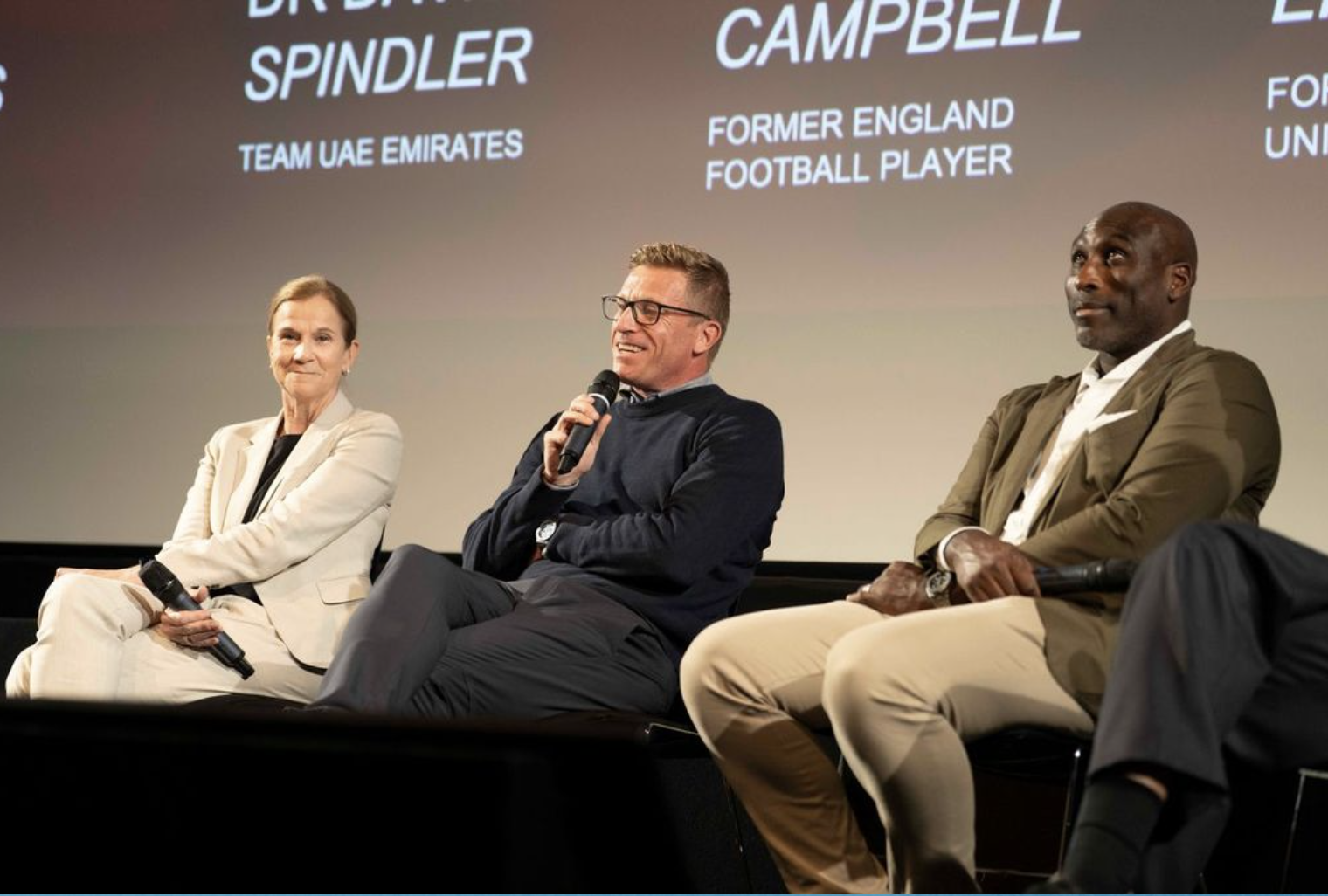
Dr. David Spindler spent 25 years studying high-performance minds, working with athletes who pursue goals that seem almost impossible, like Mark Cavendish chasing Tour de France stage wins in his 40s against riders half his age. Most people would have given up years ago, but true outliers seem to have a different relationship with “impossible.” Is there something fundamentally different about how their brains process risk, failure, and long odds?
If Jill Ellis articulated the system and Sol Campbell embodied the standards, Dr. Spindler explained the chemistry of the brain and of relationships. He has spent 25 years studying high performance, including with Sir Mark Cavendish, who returned to win Tour de France stages while racing riders half his age.
He described Cavendish’s internal architecture:
“He had an internal dialogue that was opposite of what other people were telling him.”
The fuel? Passion, motivation, drive, the same circuits that get anyone out of bed to tackle a hard job. Elite sport is simply “just a slightly different pitch.”
But raw circuitry doesn’t explain why some athletes continue to break through when the narrative turns against them. Trust does. David shared how he began working with Cavendish, by not beginning at all. He withheld immediate attention, first speaking to the team and creating space for Cavendish to approach him on his own terms.
“I allowed him to be vulnerable… and kept [those conversations] to myself… that trust is unbelievably important when it comes to any relationship.”
Dr. Spindler stressed that psychological safety and trust are not optional extras, but essential components of high-performing teams, whether in sport or in business. The combination of internal motivation and a supportive, confidential environment allows individuals to reach seemingly impossible heights.
Hearing from Jill, Sol, Anders, and Dr. Spindler made one thing clear: high performance is never accidental. Whether in elite sport or building a startup, excellence is cultivated through preparation, culture, clarity, and trust. Leaders who embed these principles create teams capable of sustained success, even under extreme pressure.


%202.png)




.png)
